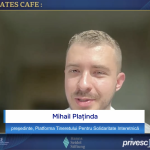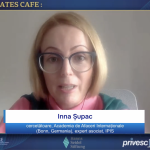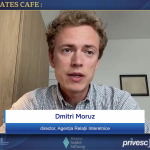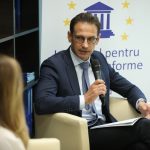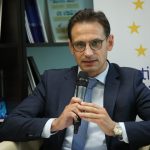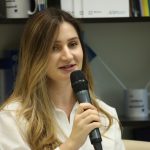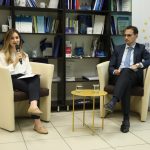EU Debates Cafe: Social cohesion in the Republic of Moldova can increase by integrating ethnic minorities into the public service
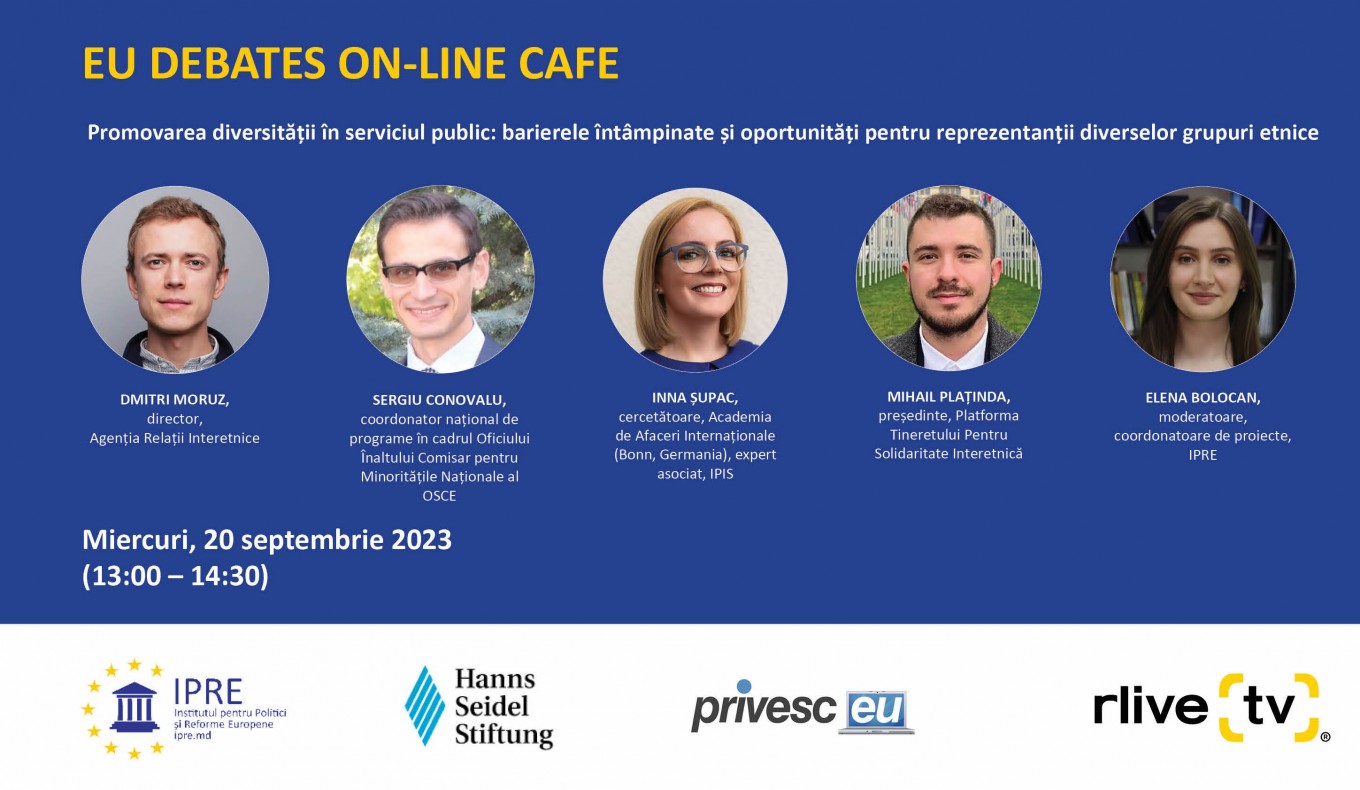
Active participation of ethnic minorities in social life and public service, linguistic and cultural shortcomings to be overcome, were addressed in a new edition of the #EUDebatesCafe public debate, entitled “Promoting diversity in public service: barriers encountered by representatives of national minorities”. The event was organized on September 20, 2023, by the Institute for European Policies and Reforms (IPRE) in partnership and with the support of the Hanns Seidel Foundation.
The guests at the event moderated by Elena Bolocan, IPRE project coordinator, talked about promoting diversity in public service as a main factor in strengthening social cohesion and intercultural dialogue in the Republic of Moldova, about effectively addressing and eliminating barriers that prevent ethnic minority groups from accessing public service. The participants also discussed about encouraging the use of the state language in these environments, but also what are the examples of good practices, both from the Republic of Moldova and from other countries, which can be applied to support the participation of ethnic minority groups in social life and public service.
Next, we propose some of the main interventions of the speakers.
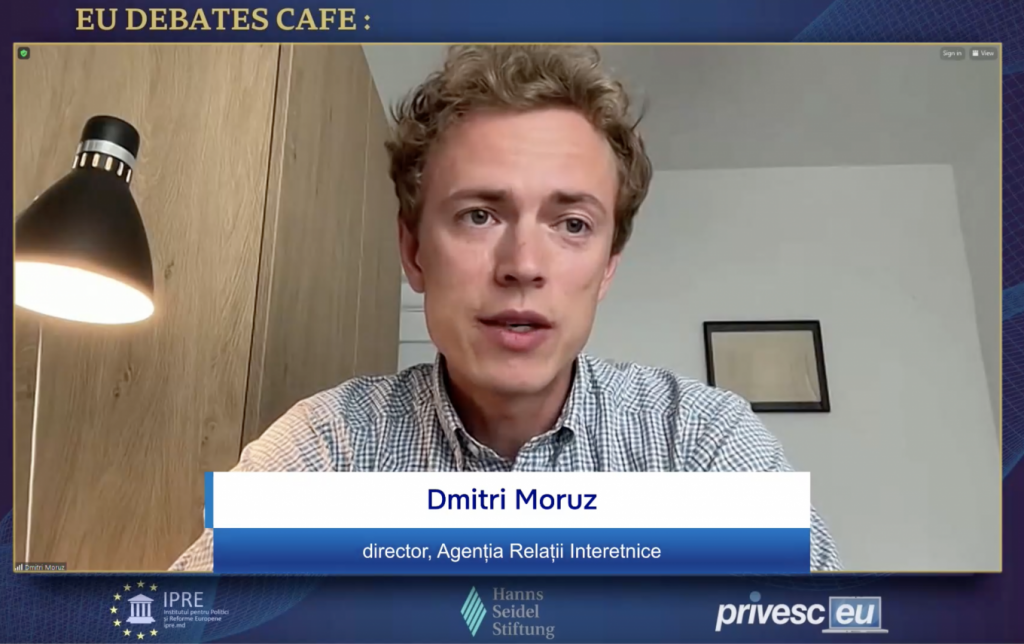
Dmitri Moruz, director, Agency for Interethnic Relations: “The subject of knowledge of the national language by ethnic groups can be an impediment to access and participation in public life. How can this barrier be overcome? Let’s try to look at it from several angles, because so far this barrier seems to me to have been approached only from the point of view of learning grammatical skills. Suppose that by learning the grammar and vocabulary of a language people begin to speak it, which is not true, in my opinion. If we talk about children, who belong to an ethnic minority, the implementation of the multilingual education system is taking place in Moldova, which would lead to learning and speaking Romanian. I want to say that the state must provide conditions for learning the Romanian language, taking into account the context in which people find themselves. There are a lot of problems and let’s not hope that right away, even if we made those free courses available to them, in a few years we won’t have this problem anymore. If we are talking about minorities, we should continue to promote the culture of tolerance. A language is taken up only if man believes that he is respected or if man associates himself with that language.”
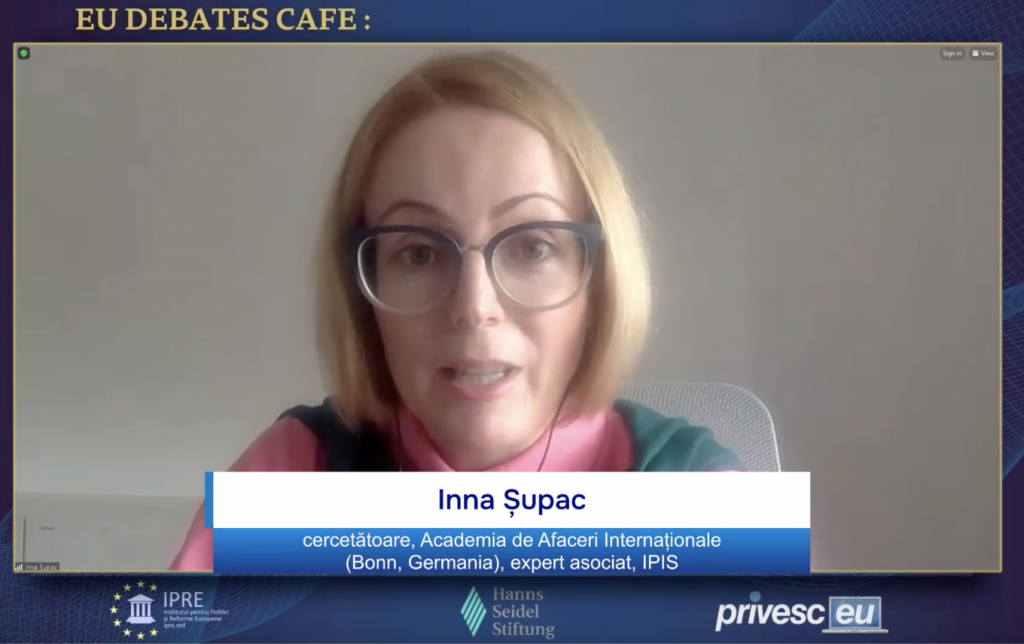
Inna Supac, researcher, Academy of International Affairs (Bonn, Germany), associate expert, IPIS: “I believe that there is a need to create a national consensus on the European integration of the Republic of Moldova, that the desire of the Republic of Moldova to become a member of the European Union is irreversible. In order to reach this national consensus, we first need to create a credible platform to discuss with all parts of Moldovan society, including representatives of different ethnicities, who first need to be heard and their opinion taken into account. But one thing must be realised, that the values of the European Union, first of all, are related to respect for the rights of national minorities. So, in order to reach this national consensus and to have this frank dialogue with different ethnicities, all of us, starting with political parties, must realize that we must depoliticize and deideologize all questions related to language. Only in this way, perhaps, will we reach this national consensus. After all, I believe that our problem is that we must, within this discussion platform, with respect for everyone, realize that the Republic of Moldova is home to all ethnic groups living here. And respectively, I think that looking at the big picture, we need to encourage different ethnic groups to be part of this decision-making process.”
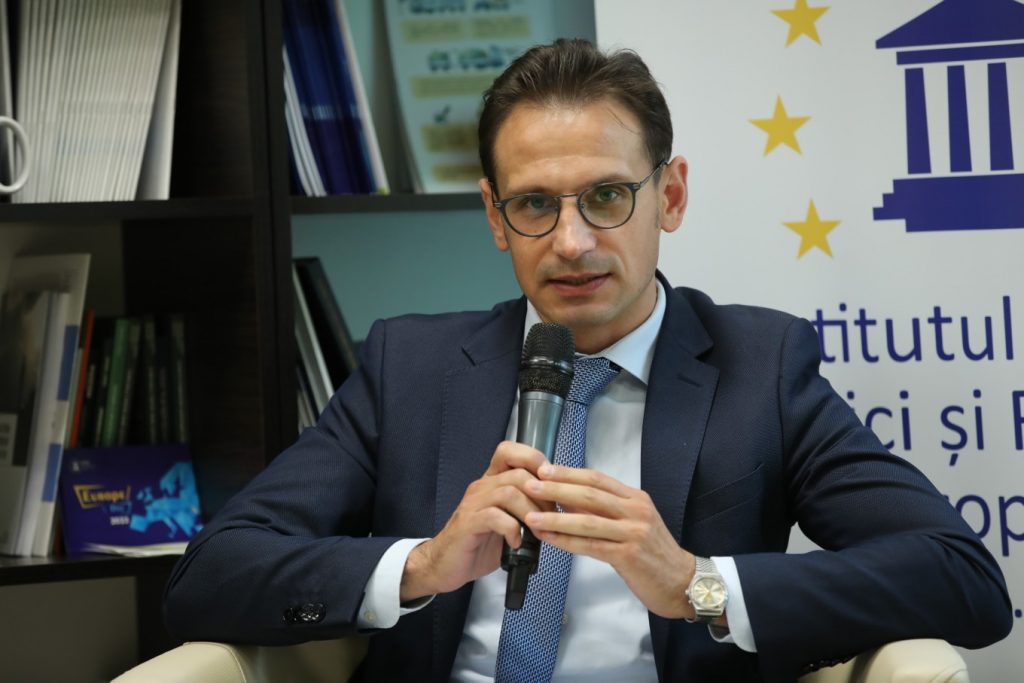
Sergiu Conovalu, National Programme Coordinator at the Office of the OSCE High Commissioner on National Minorities: “The Republic of Moldova, like many other countries, is quite diverse, both linguistically and ethnically. The question is what do we do with this diversity, to benefit from it, to enhance it? I think this is the question that we all need to answer, because we often hear remarks like ‘to do as well as they can’, and one or the other says on the contrary ‘we have no possibilities’. The Office of the High Commissioner, which I represent, attaches importance to this area, including through its recommendations, starting with the effective participation of national minorities in public life, because this participation is an essential component of every state, where every citizen, regardless of the group representing him, has the opportunity to integrate and participate actively in the plenary life of society. The Office of the High Commissioner addresses this issue, including from the perspective or approach of conflict prevention. National minorities, being an integral and inherent part of a society with distinct cultural, linguistic or historical characteristics, need to be treated as such. This also promotes a shared common identity, in the context of the diversity that exists. In this way, the feeling of common belonging to society is strengthened, in which each citizen feels involved and encouraged to contribute with what he has and represents him. A low level of participation can have undesirable effects, which can lead to marginalisation, exclusion of groups from society and, ultimately, tensions between groups or conflicts may arise. At international or regional level, we know of plenty of examples of this, which is why the Office of the High Commissioner is also addressing this area, which is vital for a peaceful and democratic society. I believe that each state is responsible to recognize, first of all, the fact that there is diversity in its society and to come up with an approach to managing it correctly.”
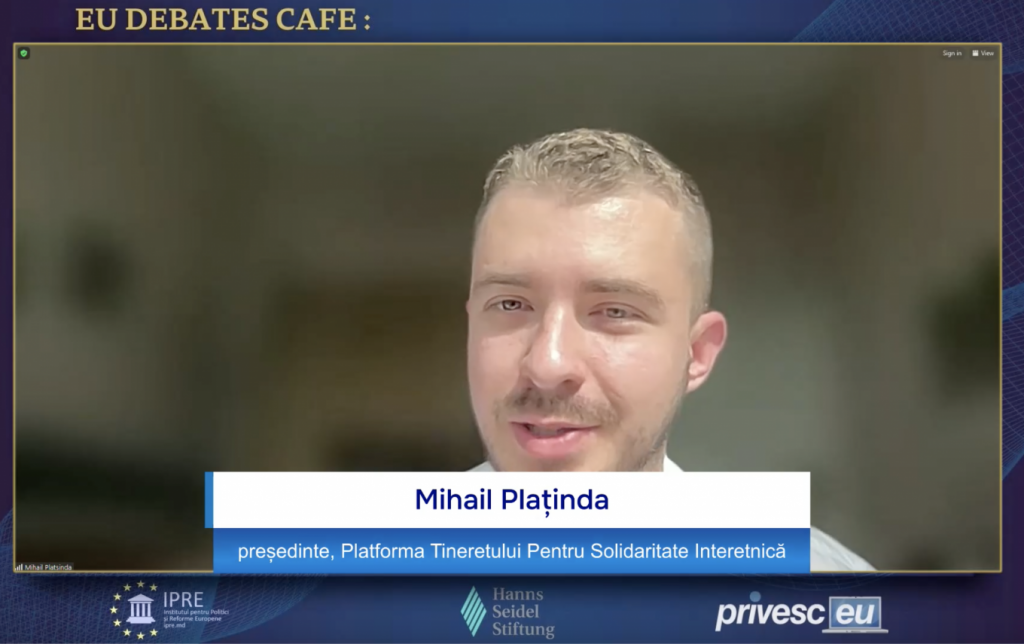
Mihail Platinda, President, Youth Platform for Interethnic Solidarity: “I want to mention some positive and optimistic things related to minority participation in public life. First of all, we must mention that both our society and our legislation are friendly to young minorities and minorities from various ethno-linguistic groups. Here we bear in mind that there are no formal or rather legal barriers to participation or diminish the participation of national minorities in public life. But diversity, as they say, of course, is the wealth of a country, but only when it is harnessed. When this diversity is not harnessed and is not somehow used, it can also become the cause of conflicts, including interethnic conflicts. Another good example is one of the recommendations of the Equality Council, which clearly states that state institutions are encouraged to employ persons belonging to minorities, especially linguistic minorities, to contribute their knowledge, including linguistics. Through this, in one way or another, they become ambassadors, ambassadors or community mediators in these institutions, especially when it comes to institutions such as police, medical institutions and so on.”
For more details, you can watch the video recording of the event on privesc.eu here and on Live Reality here.
The event was organized within the project “EU DEBATES CAFÉ: Advancing knowledge and expertise on EU institutions and policies in the Republic of Moldova”, implemented by IPRE, in cooperation with the Hanns Seidel Foundation in the Republic of Moldova and with the financial support of the Federal Ministry of Foreign Affairs of Germany.

